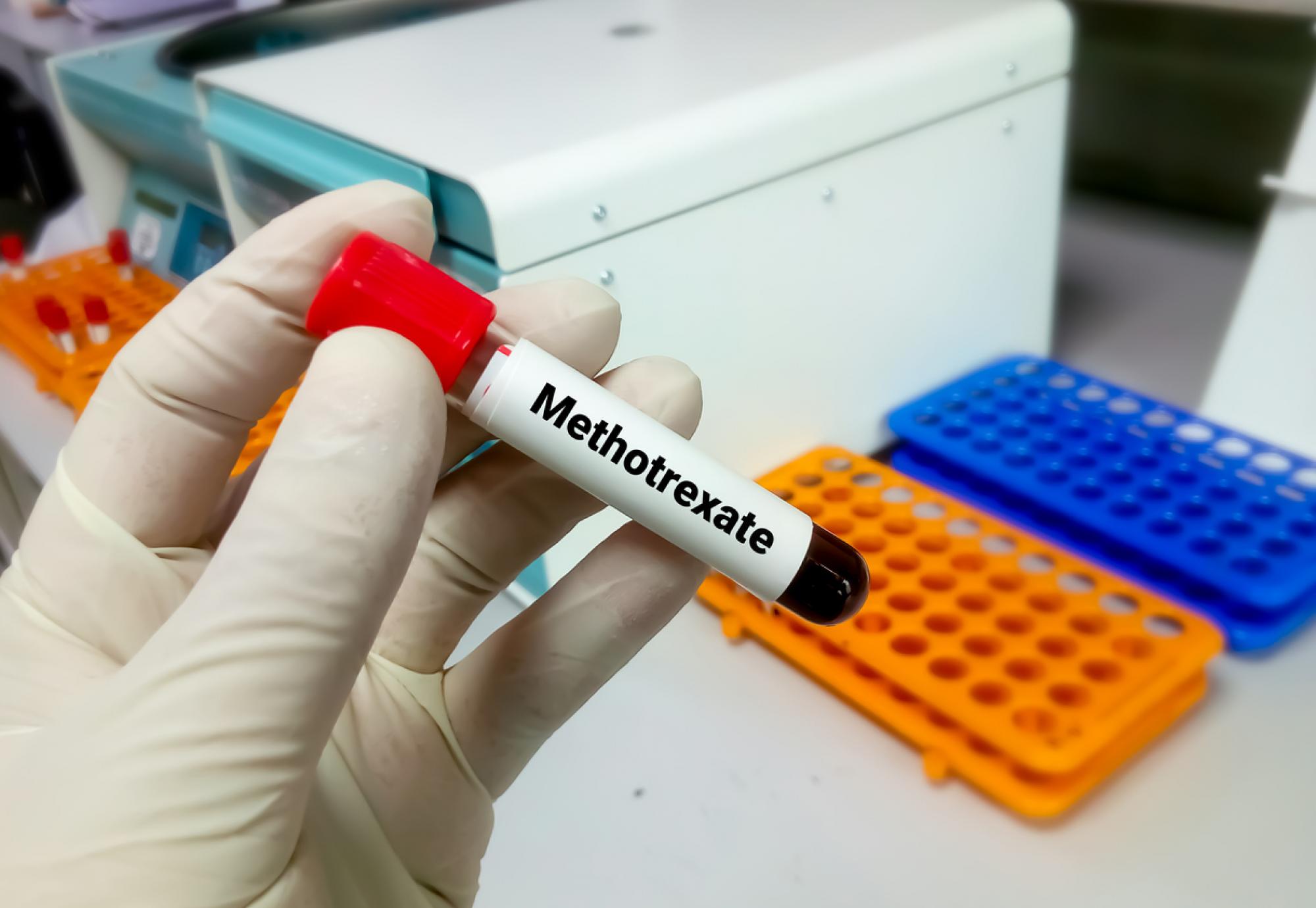A new study has found that interrupting the treatment of clinically vulnerable people who are on long-term immune-suppressing medicines for two weeks, after their Covid-19 booster jab, can double their antibody response to the vaccination.
The VROOM trial – funded by the National Institute for Health and Care Research and the Medical Research Committee, and led by researchers from the University of Nottingham – investigated the impact of taking the most clinically vulnerable patients off the immune-suppressing drug methotrexate.
The study found that after analysing over 250 participants over a four and 12-week period, the level of spike-antibodies their bodies produced had increased by more than two-fold in comparison to those still using methotrexate.
Methotrexate is commonly used to treat inflammatory conditions like rheumatoid arthritis and psoriasis, but when taken in conjunction with a booster vaccine, it inhibits the body’s ability to fight against infections as well as its ability to generate a robust response to vaccinations.
Professor Andy Ustianowski, NIHR Clinical Lead for the Covid-19 Vaccine Research Programme and Joint National Infection Specialty Lead, said: “Despite the majority of the UK population now being vaccinated, it remains as important as ever to continue ongoing research to ensure we can use vaccines effectively in different groups of patients.
“These landmark results provide high quality evidence to help best protect millions of people with compromised immune systems, keeping them safer from the virus and their existing chronic conditions.
“Thank you to all the participants who took part, we rely on their continued commitment to help us learn more and ultimately beat the virus.”
The participants used in the clinical trial were recruited from 26 NHS hospitals across England and Wales, with the patients split into two groups of 127 – one group trialling the temporary suspension of methotrexate, whilst the other continued as normal.
Chief Investigator, Professor Abhishek at the University of Nottingham and Honorary Consultant Rheumatologist at Nottingham University Hospitals NHS Trust, said: “We are extremely pleased with the initial results of the VROOM trial.
“There was a doubling of the antibody response in patients who held off on taking methotrexate for two weeks. The improvement in antibody response was maintained over a three-month period. There was a short-term increase in risk of flare-up of inflammatory conditions. However, most could be self-managed.
“We also saw no adverse impact on the quality of patient’s life following suspension of their medication. However, the study did not evaluate whether this strategy would result in fewer cases of Covid-19 or fewer hospitalisations due to Covid-19 as it was not large enough to detect these differences.
“Implementing these results could vastly improve the protection provided by boosters against Covid-19 for millions of people living with these conditions. Covid-19 has left them vulnerable to serious illness, whilst still having to live with the painful and troubling effects of their conditions. We hope this evidence is the next step in helping them with their lives going forward.”
The research was run by the Oxford Clinical Trials Research Unit, and was completed in partnership with Queen Mary University London, Imperial College London, the University of Oxford, and the University of Manchester.
More information about the trial is available here.



















